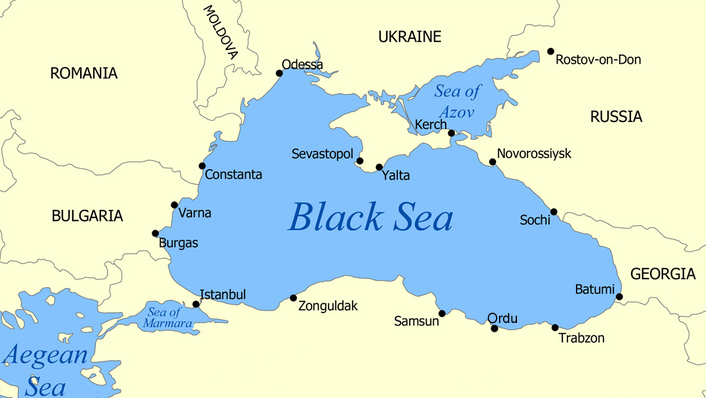
[ English version ] [Version en français]
El medio de comunicación Pronews.GR (agencia de noticias) y el periódico Kathimerini habían informado recientemente que Rusia podría estar considerando establecer un consulado en los territorios ocupados por Turquía en el norte de Chipre, ya que después de la invasión de Rusia a Ucrania ha habido especulaciones desde Atenas y Nicosia sobre eso. La embajada rusa en Chipre ha rechazado esto, aunque ha habido cierta inquietud por parte de algunos sectores, consulte este enlace para obtener más información.
To put it succinctly, the current situation puts Turkey more than ever between a rock and a hard place, no matter who you want to be the rock or the hard place, Russia or the NATO framework. But let's give you a minimum necessary framework to understand the situation:
When the Russian Federation annexed Crimea in March 2014 it produced effects on this scenario that we could equate to those triggered by the Treaty of Küçük Kaynarca, signed on 21 July 1774 in Küçük Kaynarca or Dobruja (today, Kaynard Zha in the Bulgarian Silistra) between the Russian Empire and the Ottoman Empire after the latter's defeat in the Russo-Turkish war of 1768-1774. The Ottomans ceded to Russia the region of Yedisan between the Dnieper and Southern Bug rivers, including the port of Kherson, and allowed the Russian Empire direct access to the Black Sea; this element is now finding its perfect replica, as I explained here. The Küçük Kaynarca treaty saw Russia gain the Crimean ports of Kerch and Yeni-Kale (in the Crimea annexed by Russia in 2014, the parallels remain firm and lacerating, not just for Ukraine, but also for Turkey) and the Kabardino-Balkaria region in the North Caucasus district bordered to the north by Stavropol, to the east by North Ossetia-Alania, to the south by Georgia (the 2008 conflict is once again echoing in this region) and to the west by Karachayev-Cherkessia.
The most significant aspect of the treaty for naval history is that it gave Russia access to warm water ports and passage through the Dardanelles. The Ottomans, of course, also lost the Crimean Khanate, which was granted independence, and became effectively dependent on Russia, being annexed to the Russian Empire in 1783 as the Taurid Oblast. The treaty also granted Russia several non-geographical items. In addition, restrictions on Russian access to the Sea of Azov were removed, extending the limitations imposed by the 1739 Treaty of Belgrade by which Russia had obtained territory adjacent to the Sea of Azov, but which prohibited the fortification of the area or the use of the sea for the transport of goods. Similarly, completely closing off control of the Sea of Azov and its Exclusive Economic Zone is another element guiding Russia in this 2022 war.
This post is for subscribers only
Subscribe now and have access to all our stories, enjoy exclusive content and stay up to date with constant updates.
Already a member? Sign in
